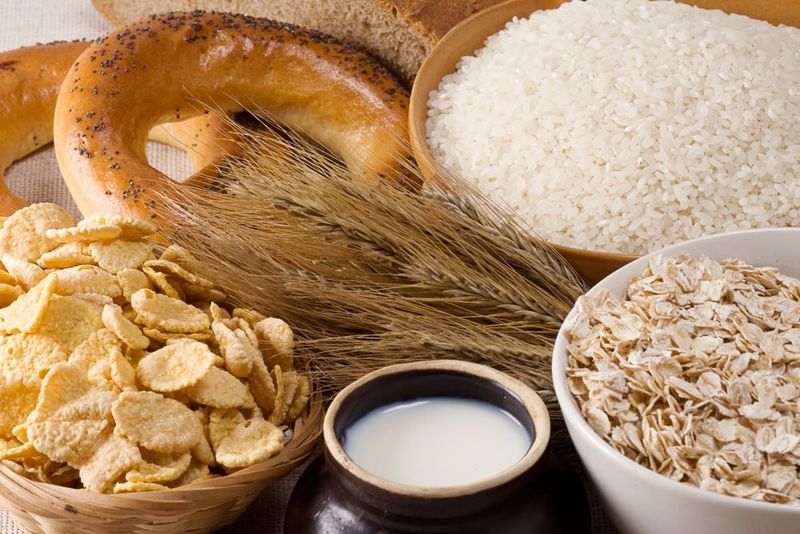Picture your immune system as the body’s elite security team—swift, silent, and relentless when genuine threats break through. Trouble begins when that team stays on high alert around the clock, mistaking breakfast, lunch, and dinner for invaders. The result is chronic, low-grade inflammation, the molecular equivalent of a smoldering fire that gradually warps arteries, stiffens joints, and saps energy long before you see smoke. What lights these covert sparks? Often the very foods we rely on for convenience, comfort, or even supposed “health.”
In the pages ahead, we’ve ranked the worst dietary offenders still hiding in plain sight on grocery shelves and take-out menus. This isn’t another fear-mongering hit list built on myth and moralizing; every slot reflects peer-reviewed data—from skyrocketing C-reactive protein readings to double-blind trials linking certain fats with endothelial chaos. You’ll find usual suspects like sugar-sweetened sodas and bacon, but also stealth agents such as refined grains that masquerade as “whole” and omega-6 oils that tip the body’s fatty-acid balance toward perpetual irritation.
Why focus on ranking? Context. Knowing industrial trans fats torch your arteries faster than a stack of pancakes doused in syrup helps you triage substitutions realistically instead of purging half the pantry overnight. Think of it as a GPS for inflammation: red zones demand urgent rerouting, amber zones call for cautious moderation, and the green-light swaps we sprinkle throughout will steer you back toward metabolic calm.
Whether you’re a data-driven athlete chasing marginal gains, a busy parent avoiding another afternoon energy crash, or a clinician arming patients with evidence-based guidelines, this list is designed to turn scientific nuance into actionable grocery choices. Ready to see which favorites earn the dubious gold medal—and what to eat instead? Grab your shopping list and a highlighter—course corrections start on item one. Let’s count them down, from mild ember to full-blown blaze.
10. Unprocessed Red Meat

A juicy steak might be the least problematic item on this list, but it still deserves mention. Unprocessed red meat contains compounds that can trigger mild inflammatory responses, especially when consumed frequently.
Research shows modest increases in C-reactive protein (CRP) levels with regular red meat consumption. The effect is much smaller than with processed meats but still measurable.
The cooking method matters significantly – grilling at high temperatures creates more inflammatory compounds than gentle cooking methods. If you enjoy red meat, choosing lean cuts, limiting portion sizes, and pairing with anti-inflammatory vegetables can help minimize the inflammatory impact.
9. Omega-6-Rich Vegetable Oils

Not all cooking oils are created equal when it comes to inflammation. Corn, soybean, and sunflower oils contain high levels of omega-6 fatty acids that can tip your body’s balance toward inflammation when consumed excessively.
Your body needs both omega-3 and omega-6 fatty acids, but modern diets often contain far too many omega-6s. This imbalance creates a pro-inflammatory environment in your tissues.
These oils hide in almost every processed food, multiplying your exposure. Switching to olive oil for cooking and avoiding processed foods can help restore a healthier fatty acid balance and reduce inflammation.
8. Excess Alcohol

A glass of wine with dinner might have health benefits, but excessive drinking fuels inflammation. Heavy alcohol consumption damages the protective lining of your gut, creating what doctors call “leaky gut.”
When your gut barrier weakens, bacterial endotoxins leak into your bloodstream. Your immune system responds with inflammatory defenses that, over time, can become chronic and systemic.
Alcohol also disrupts your sleep patterns and liver function, both critical for controlling inflammation. Moderation truly matters – the difference between one drink and three can determine whether alcohol helps or harms your inflammatory balance.
7. Sugar-Sweetened Beverages

That refreshing soda might quench your thirst, but it floods your system with inflammation-promoting sugars. A single can contains more added sugar than your body should process in an entire day.
The rapid absorption of liquid sugars creates dramatic glucose and insulin spikes. These spikes trigger the release of inflammatory messengers like IL-6 and TNF-α throughout your body.
Unlike solid foods, these beverages don’t make you feel full, making overconsumption easy. Swapping your daily soda, sweet tea, or sugar-loaded coffee drink for water could dramatically reduce your inflammatory burden.
6. Fried Foods

Those golden, crispy french fries might be delicious, but they’re inflammatory troublemakers. High-heat frying creates advanced glycation end-products (AGEs) that trigger inflammation throughout your body.
When oils are heated to high temperatures repeatedly, they become oxidized and produce harmful compounds. Your immune system recognizes these compounds as threats and launches inflammatory responses to combat them.
The combination of refined carbs and damaged fats in fried foods creates a double inflammatory whammy. That fried chicken dinner or those onion rings might satisfy momentarily but contribute to long-term inflammatory damage.
5. Ultra-processed Foods

Those colorful packages lining grocery store shelves contain more than convenience – they’re loaded with inflammation-promoting ingredients. Ultra-processed foods combine refined carbs, poor-quality fats, excess sodium, and numerous additives into perfect inflammatory storms.
Your body wasn’t designed to recognize many of the ingredients in these products. This unfamiliarity triggers immune responses that increase inflammatory biomarkers like CRP.
Studies consistently show that people who consume more ultra-processed foods have higher levels of inflammatory markers. That quick packaged lunch might save you time now but cost you health later.
4. Added Sugars

That spoonful of sugar doesn’t just help the medicine go down – it helps inflammation go up! Table sugar, high-fructose corn syrup, and other sweeteners trigger inflammatory responses throughout your body.
When you consume sugary foods, your body produces insulin to manage the glucose. Frequent sugar consumption leads to insulin resistance and increased production of inflammatory cytokines.
Diets rich in added sugars score strongly positive on the Dietary Inflammatory Index. Those candy bars, cookies, and sweetened yogurts might taste good momentarily but create lasting inflammatory effects that undermine your health.
3. Refined Grains & Starchy Foods

White bread, pasta, and rice might seem innocent, but they’re stripped of their beneficial fiber and nutrients. What remains are quick-digesting carbs that spike blood sugar and trigger inflammatory responses.
When manufacturers remove the bran and germ from whole grains, they create products that digest rapidly. This rapid digestion leads to glucose spikes followed by insulin surges that promote inflammation.
These refined grains score among the highest pro-inflammatory values on modern dietary indexes. Your white toast breakfast and pasta lunch could be feeding inflammation throughout your body all day long.
2. Processed Meats

Bacon sizzling in the pan might smell heavenly, but your body sees it differently. The combination of nitrates, excess salt, and saturated fat in processed meats creates the perfect inflammatory storm.
Your morning bacon, lunchtime deli sandwich, and pepperoni pizza all contribute to elevated C-reactive protein levels. These preservation methods that keep meats shelf-stable unfortunately make them body-hostile.
Research links regular processed meat consumption not just to inflammation but to colorectal cancer and heart disease. That convenience comes at a steep price for your long-term health.
1. Industrial Trans Fats

Those partially hydrogenated oils lurking in packaged cookies and microwave popcorn are inflammation supervillains. They raise inflammatory markers like CRP, IL-6, and TNF-α more dramatically than any other dietary fat.
Food manufacturers created these unnatural fats to extend shelf life, but your body has no idea how to process them properly. Even small amounts can trigger inflammatory responses throughout your system.
Many countries have banned trans fats, but they still hide in processed foods under sneaky names. Check labels for “partially hydrogenated” oils – that’s code for these dangerous inflammation triggers.
Leave a comment